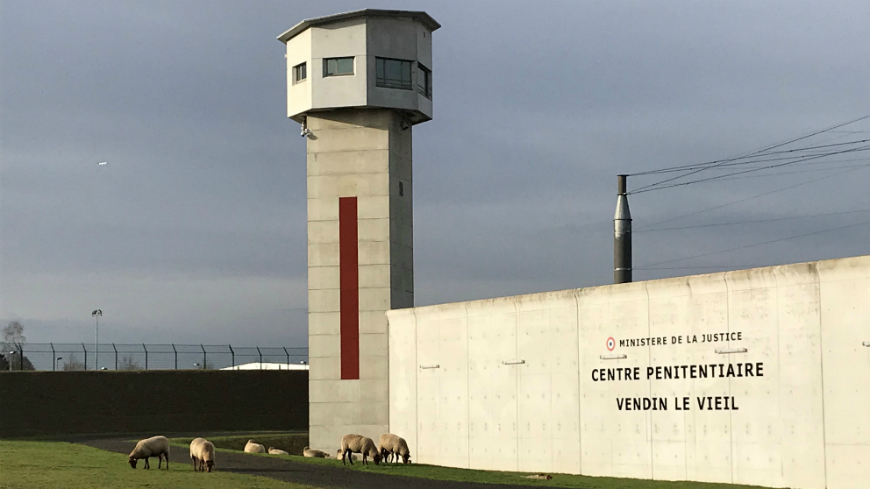As regards police establishments, while the majority of those interviewed did not report any physical ill-treatment, several people indicated that they had been deliberately beaten during their arrest or on police premises. Allegations of insults, including of a racist or homophobic nature, were also reported, as well as threats made with a weapon.
The CPT recommends issuing reminders that the use of force should be strictly necessary and that measures should be taken to strengthen the fight against impunity.
There is also a need to improve the quality of notification of rights and to allow effective access to a lawyer in all circumstances.
Generally speaking, the CPT is extremely concerned about the material conditions of detention in some of the police stations visited.
As regards prisons, since 1991 the CPT has noted that prisons are overcrowded, with occupancy rates exceeding 200% in some establishments. At the time of the visit, almost 1,500 prisoners were sleeping on mattresses on the floor.
The CPT calls on the French authorities to take urgent measures to ensure that each detainee has a bed and at least 4 m² of living space in a collective cell, to adopt a comprehensive strategy to reduce the prison population and to prevent inter-prisoner violence.
In terms of material conditions (conditions of incarceration, activities on offer), the CPT notes a significant difference between the establishments visited. In the disciplinary and isolation units, the cells were often poorly insulated and lacked natural light and the exercise yards were too small and under-equipped.
The Committee continues to be concerned about the placement of detainees in solitary confinement for prolonged periods, sometimes exceeding several years, because of its impact on mental health.
The CPT considers that it is unacceptable that persons suffering from severe psychiatric disorders remain detained in prison for lack of transfer to adequate care facilities. The treatment of persons held in specially adapted hospital units is a definite step forward, but there are still not enough places in these facilities. Furthermore, the Committee once again deplores the fact that the transfer and care of detainees in hospitals are still often carried out in unacceptable conditions: almost systematic use of shackles and frequent presence of escort staff during consultations.
As regards psychiatry, the CPT visited Cadillac Hospital where the vast majority of patients with whom the delegation spoke felt that they were treated correctly by the health care staff, despite a perceived lack of time and availability.
A small number of patients did however complain of having been subjected to abusive language, as well as excessive use of force, most often during restraints or placements in isolation rooms, in order to control an agitated patient.
The CPT regrets that the use of physical force by staff, which may sometimes be justified, was not systematically recorded, and when it was, the data did not make it possible to demonstrate how it had been strictly necessary and applied in accordance with the principle of proportionality.
The material living conditions in the establishment were extremely disparate depending on the unit, with the most dilapidated offering little or no privacy for patients, particularly for resting or washing. The closed general psychiatric wards suffered from a lack of beds and regular overcrowding. The CPT calls on the authorities to ensure decent living conditions in all units, as well as an adequate number of beds in general psychiatry.
Lastly, the Committee remains concerned that the placement of patients in seclusion remained frequent, even systematic and was often perceived by patients as a form of punishment. The monitoring of patients subject to seclusion and restraint measures remained largely insufficient, while their duration was excessive and/or insufficiently justified in the files.
In the course of this visit, the CPT visited 12 law enforcement establishments (police and gendarmerie), four prisons (Bordeaux-Gradignan, Lille-Sequedin, Maubeuge and Vendin-le-Vieil), one large psychiatric care establishment (forensic unit of Cadillac Hospital). Although co-operation with the French authorities was good, the CPT did encounter difficulties in gaining access to medical data and records of hearings which were essential for the performance of its mission.
The anti-torture Committee is also publishing a second report on an ad hoc visit in July 2020 to detention facilities in Strasbourg (prison, court, hospital, Geispolsheim Administrative Detention Centre, Strasbourg police headquarters, Haguenau police station, gendarmerie brigades), to observe the impact of the health measures adopted in the context of the Covid-19 pandemic.
Overall, the appropriate steps have been taken to protect staff and persons deprived of their liberty but there is still room for improvement in terms of the care provided to the latter.
- Read the report on the 2019 visit (in French only)
- Read the summary of the report in English
- Read the response (in French only)
- Read the report on the 2020 visit to France (in French only)
- Read the response (in French only)
- Appendices to the response (in French only)




